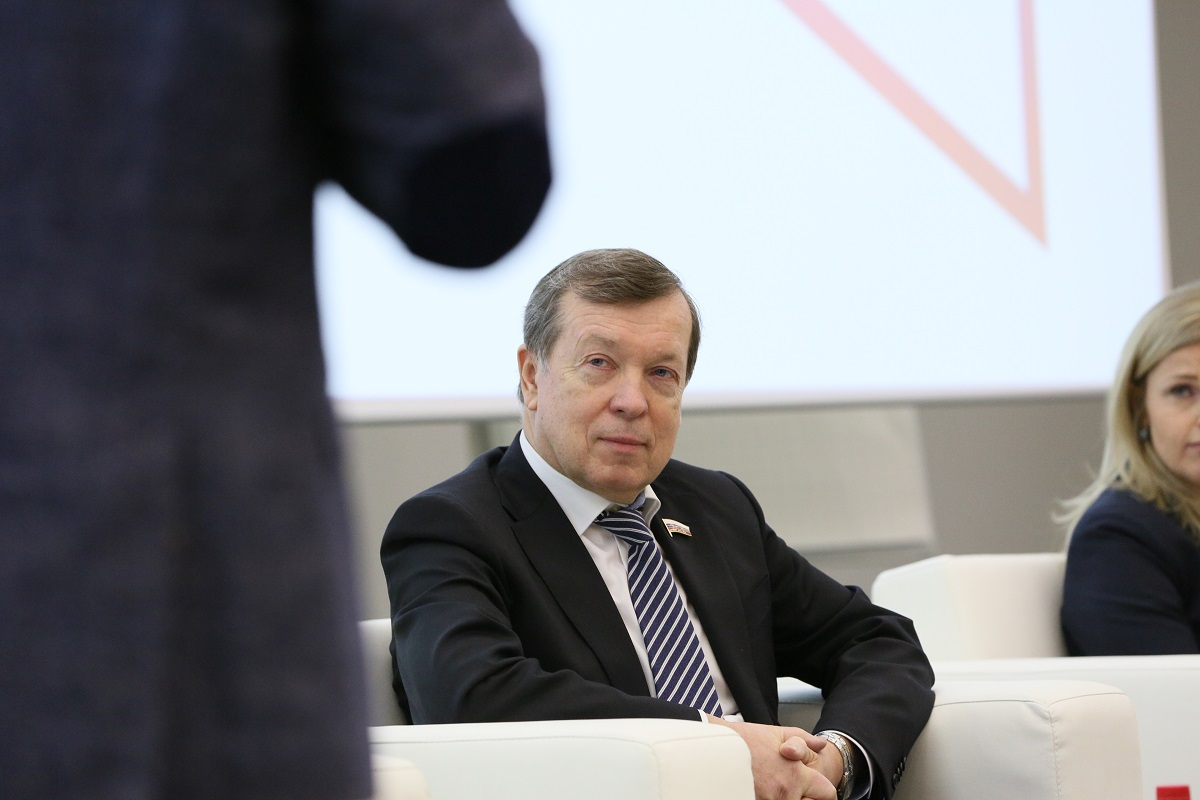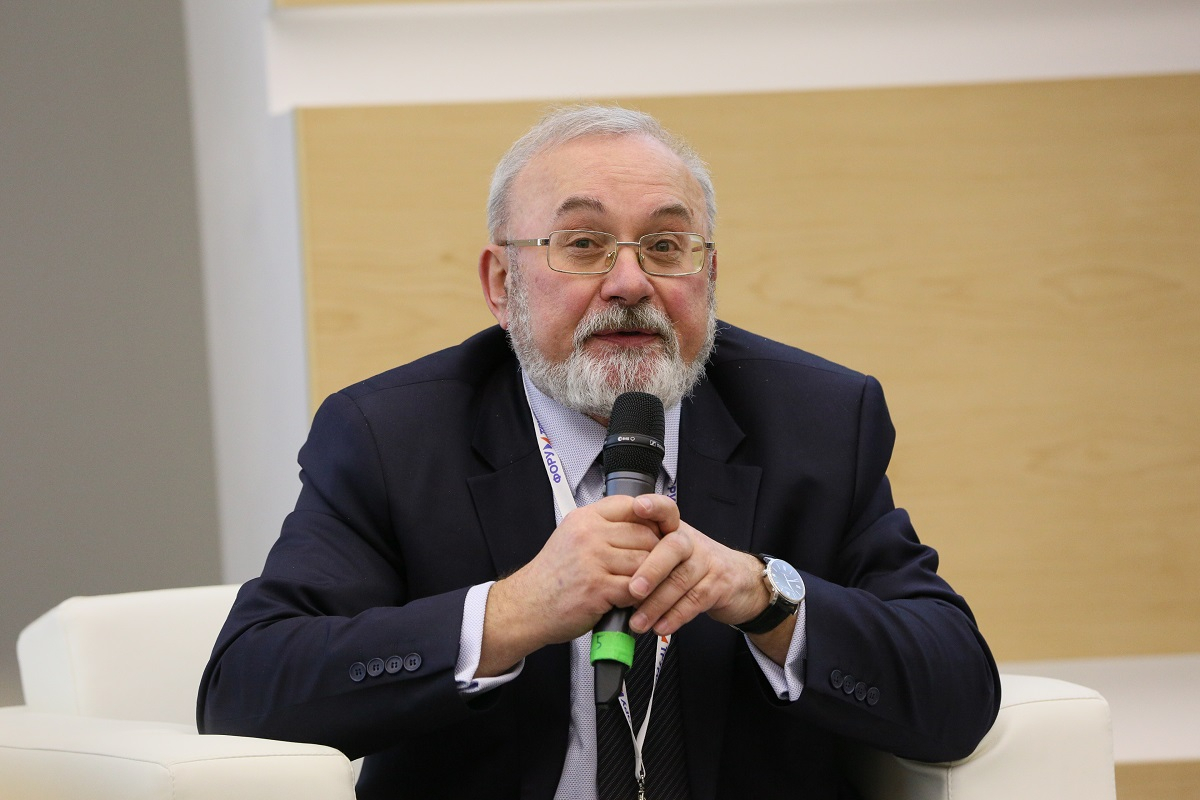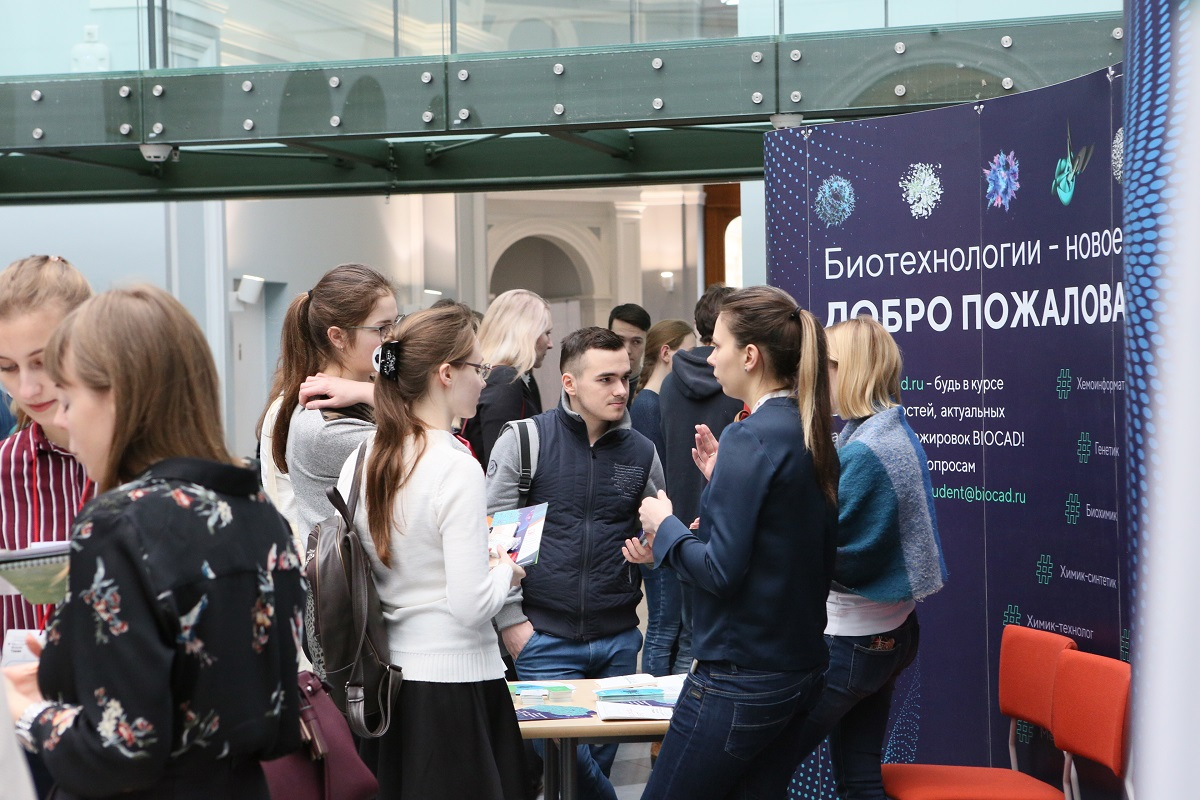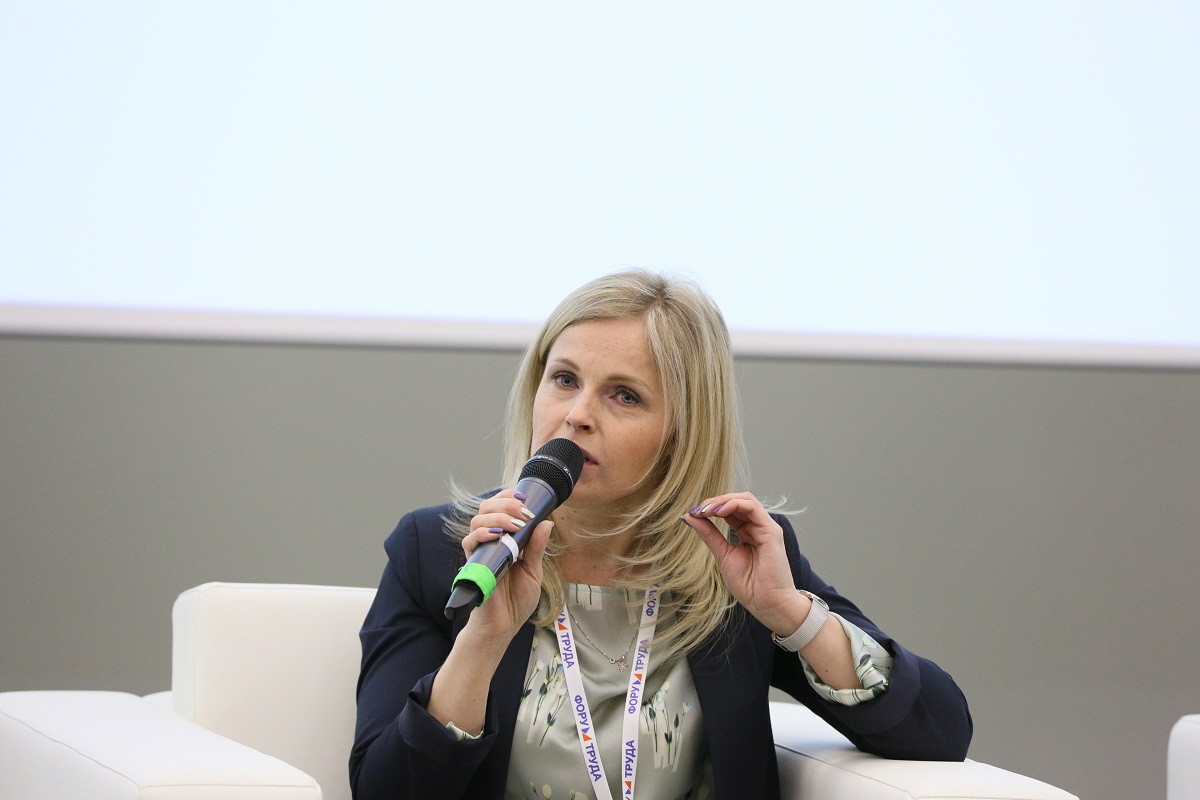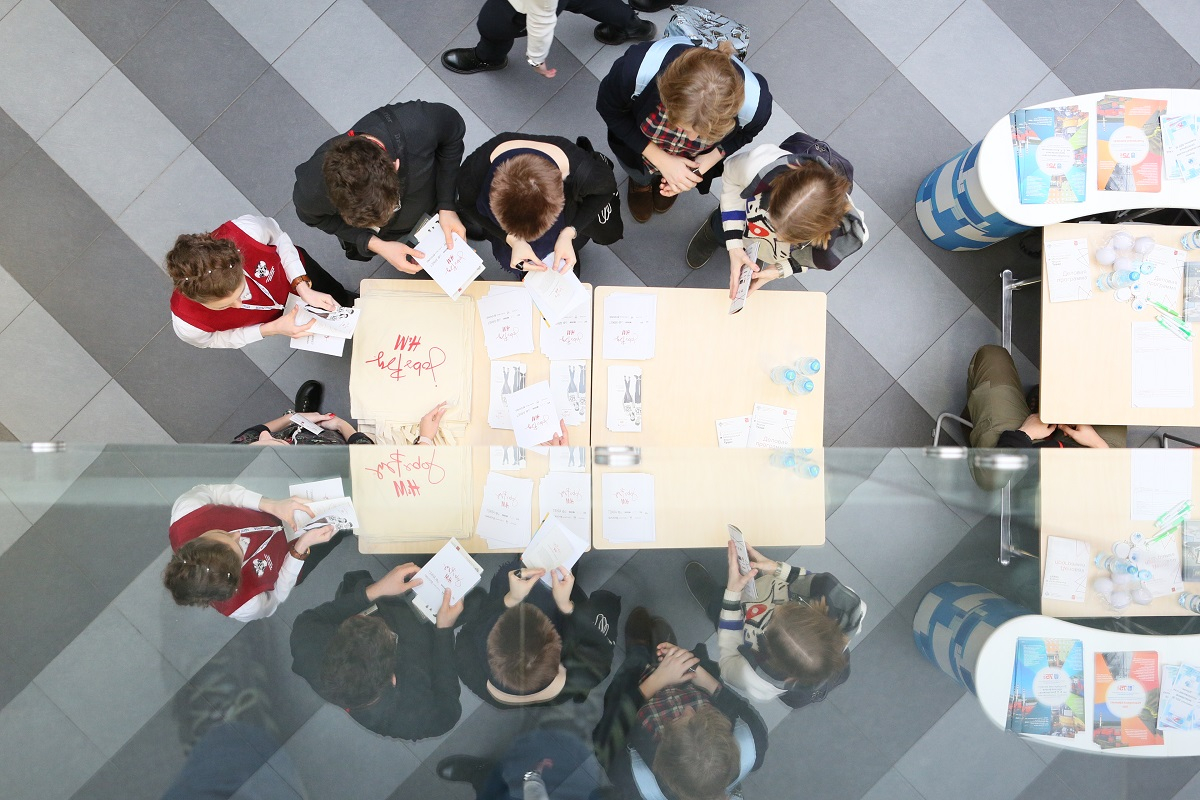What should be done to remain employable for half a century: the International Youth Labour Forum opened in St Petersburg University
What risks for workers does the introduction of information technology into the production cycle involve? What education – specialised or multidisciplinary – is necessary to be in demand in the modern labour market? These and other questions have been discussed at the III International Youth Forum in St Petersburg University. This year a record number of people applied to participate in the forum – more than 1000 students.
In his opening address to the guests and participants at the event, Dmitrii Cherneiko, the Chairman for the Committee on Labour and Employment of St Petersburg, emphasised that it is one of the few venues in Russia that brings together managers, representatives of HR departments and other specialists that influence the labour market. Most significantly, the Forum follow-up strategies might form the basis for legislative and management solutions.
In the future, institutionalised professions are likely to disappear and be replaced with a set of specific competencies. To remain employable on the labour market for over 50 years requires an educational, competency-based platform that is to be regularly complemented throughout one’s career.
Dmitrii Cherneiko, the Chairman for the Committee on Labour and Employment of St Petersburg
He said that a university diploma does not demonstrate the qualifications of a new graduate, while the phrase “job placement of graduates” was ipso facto inaccurate. It is necessary to start working while at the university and try as many professional fields as possible. Dmitrii Cherneiko thinks that the students of St Petersburg University are very lucky because the system of job placements or clinics developed at the University allows them to receive all necessary skills during their studies.
The University does not only prepare future specialists, but is also a dynamically developing, scientific and educational institution that brings together leading scientists, talented students and major employers.
‘All this creates a specific eco-system which is important for future high-calibre specialists. In the modern world, during the fourth industrial revolution, the preparation of workers who can think creatively and perform non-routine tasks is the main goal of the University’, said Sergey Andryushin, Deputy Rector for International Affairs of St Petersburg University.
Soft skills will only get the worker so far
The forum started with the plenary session ‘Work, Profession and Life Style: the Challenges of the 21st Century’. The participants discussed the choice of professional and life strategy – whether it is sufficient for a person to follow one profession for life or it is necessary to master a whole portfolio of professions. According to Olga Nikiforova, Associate Professor of St Petersburg University, the situation is changing rapidly, and analysts predict that 65% of today’s first graders will do jobs that do not exist now. ‘Whether we want it or not, technologies make us change. What surprises me in current students is that they are open to these innovations. They are ready to enter the labour market without knowing what is going on or without experience, and this makes ties between them and their more experienced mentors even closer’, commented Olga Nikiforova. ‘And thus, mentoring together with technologies will help to overcome all the blind spots and the absence of institutionalised professions’. The expert also noted the difficulties that await students: young people give too much importance to soft skills. However, soft skills will only get you so far. In order to maximise their opportunities, it is necessary to obtain a broad educational background.
Artificial intelligence will never substitute for creative thinking
Benefits, drawbacks and prospects of freelancing were the subject of another discussion. Evgenii Khokhlov, the head of the Department of Labour Law and Labour Protection stated that though the term ‘self-employment’ has only recently been adopted in labour legislation, the phenomenon has always been present. ‘The specifics of the processes that are taking place now is that the economy of the fourth wave and the introduction of artificial intelligence imply the optimisation of headcount. It is not only musicians, poets and other representatives of creative professions that find themselves in the labour market, but also former workers. This presents a huge challenge’, said Evgenii Khokhlov. ‘While earlier this process affected only certain specific groups, now it is a universal problem and concerns all sectors of the economy.’ Thereby, the challenge each person faces today is to develop new competencies to adapt to the situation of increasing job losses. Yet, it should be borne in mind that artificial intelligence is incapable of creative thinking, and that is why people, who would set up and create new technologies, who are profound specialists and improve constantly, will always be in demand in the labour market.
Where to look for ‘your’ employer: the ‘Career Day’ at St Petersburg University
As part of St Petersburg International Youth Labour Forum, a Career Day was held at St Petersburg University. The main goal is to provide a platform to bring together talented young specialists and employers. This year almost 1000 students and university graduates, 26 major Russian and international companies, including British American Tobacco, Schlumberger, UNIQLO, Biocad, Mars, Sberbank, ‘Gazprom neft’, Gazprombank, Unilever and others, participated in the Career Day.
The participants learnt about new internship programmes, vacancies and other career opportunities. For example, the information board of an international company, Biocad, specialising in innovative bio-technologies, presented a number of projects for young specialists.
‘Usually Biocad is associated with jobs and internships in natural sciences. However, Biocad is a full cycle company and we offer annual traineeships in various sectors, including law, IT-technology, logistics, HR, marketing, procurement, biology, chemistry and many others,’ said Natalia Boitsova, a talent acquisition specialist from Biocad.
The cooperation between St Petersburg University and Biocad is just one of the examples of active cooperation between the University and hiring companies. Besides internships, Biocad together with the Alumni Association of St Petersburg runs a scholarship programme for talented post-graduate students. In 2020 the company plans to start a joint bachelor degree academic programme with the University.


